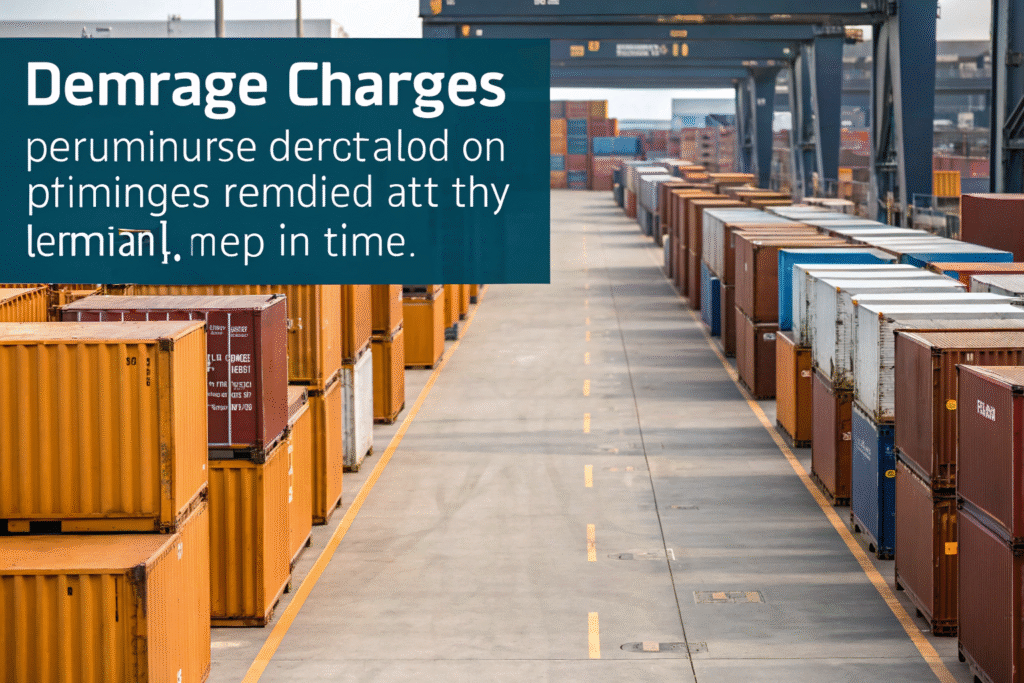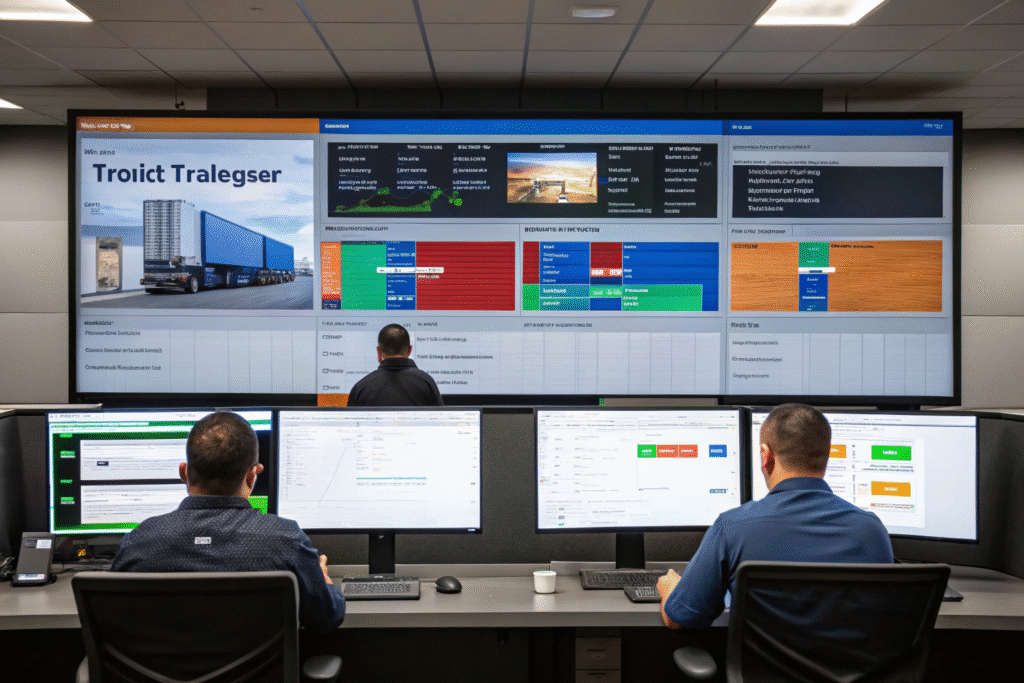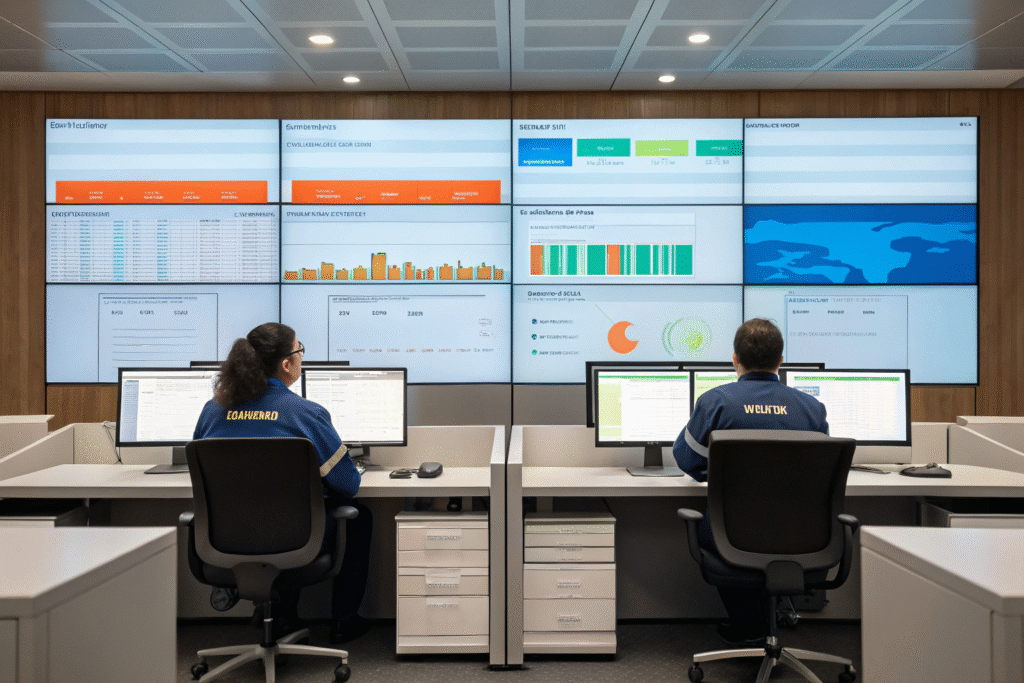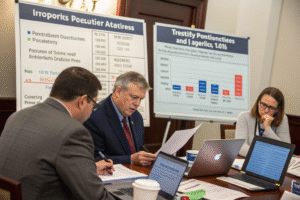You’ve shipped your goods across the ocean, they’ve arrived safely—but now they’re stuck at the terminal. Every extra day those containers sit there, you’re paying expensive demurrage fees. For importers like Ron bringing high-volume cargo from China to the U.S., demurrage isn’t just an inconvenience—it’s a profit killer.
Freight forwarders play a vital role in reducing or even preventing demurrage charges by optimizing pickup scheduling, customs clearance, and port coordination. With the right systems, contacts, and proactive communication, they ensure your goods don’t sit idle while fees pile up.
In this article, I’ll explain what demurrage is, why it happens, and how experienced forwarders like GeeseCargo help clients cut—or completely avoid—these costly penalties.
What Is Demurrage and Why Is It So Expensive?
Demurrage charges are penalties issued by shipping lines when containers aren’t picked up within the free time allowed at the destination terminal.
Demurrage occurs after a container is discharged from the vessel but remains uncollected beyond the free storage window, which typically ranges from 3–5 days.

How Much Can Demurrage Cost?
Depending on the port and carrier, demurrage can range from $75 to $300 per container per day—and it increases the longer your cargo sits. At busy ports like Port of Los Angeles, fees often escalate on day six or seven.
For a small business, five containers stuck for an extra week could easily add $3,000–$5,000 in unexpected charges.
You can explore common demurrage rate tables to understand how costs accumulate quickly.
Why Does Demurrage Happen?
Common causes include:
- Late customs clearance
- Incomplete or incorrect documents
- Missed pickup scheduling
- Lack of trucking capacity
- Port congestion or holidays
In short, if you don’t have boots on the ground and tight coordination, things slip—and that’s when the charges start.
How Do Freight Forwarders Prevent Demurrage?
Avoiding demurrage requires real-time visibility, fast response, and perfect coordination. That’s where freight forwarders come in.
Experienced forwarders like GeeseCargo actively track deadlines, pre-clear shipments, and secure trucking capacity before containers even arrive.

How Do They Speed Up Customs Clearance?
Many demurrage issues start at customs. If the paperwork isn’t in order, the container can’t leave the terminal.
We help clients pre-file import documents through CBP's Automated Commercial Environment (ACE) so that clearance is approved before the vessel docks.
We also verify commercial invoices, HS codes, and required certificates ahead of time—preventing red flags that could trigger inspection holds.
Can Forwarders Arrange Early Pickup?
Yes. As soon as we get the container availability notice from the terminal, we secure trucking appointments within hours. For high-volume ports like Long Beach or Savannah, we use bonded carriers with guaranteed pickup slots.
By working with port partners and leveraging relationships, we bypass standard queues that cause delay for unassisted importers.
You can also learn how appointment systems at U.S. ports are affecting importers.
What Tools Do Forwarders Use to Monitor and Manage Containers?
Managing demurrage risk is about tracking the right data—and acting fast. We use integrated platforms that provide real-time port and container visibility.
Freight forwarders monitor vessel schedules, container discharge, and port dwell time to ensure proactive pickup.

Which Platforms Are Used?
At GeeseCargo, we use a mix of:
- FourKites
- project44
- Terminal-specific portals (e.g., YTI, APMT, Everport)
- Port Community Systems like GEODIS Visibility
These tools help us receive container release notices instantly and plan trucking accordingly.
How Is ETA Mismatch Handled?
If a vessel arrives early or late, demurrage risk rises. We build a 1–2 day buffer around expected ETA and pre-book trucking with flexible vendors who can adjust their schedule.
In emergencies, we dispatch night shifts to collect containers within free time windows—even on weekends or holidays.
Can Freight Forwarders Negotiate or Waive Demurrage?
In cases where demurrage has already occurred, it’s not always the end of the story. Freight forwarders often have the leverage to reduce or even waive fees.
Experienced forwarders can negotiate partial refunds or penalty waivers based on contracts, volume, or past performance.

How Can They Reduce Charges?
We provide:
- Documented reasons (e.g., terminal outage, customs hold)
- Carrier contact logs
- Proof of attempted pickups
- Prior delivery records
Because we handle high volumes, we’re able to get better terms from shipping lines. In some cases, we’ve negotiated full demurrage waivers for our clients when the cause was out of their hands.
You can learn about detention and demurrage reforms by the U.S. Federal Maritime Commission.
Can They Build Demurrage-Free Agreements?
Yes. For recurring shippers like Ron, we help secure:
- Extended free-time agreements
- Lower demurrage thresholds
- Priority terminal service
These are based on forecasted volumes and long-term freight commitments, often saving clients thousands per year.
Conclusion
Demurrage is avoidable—but only with the right strategy and partner. Freight forwarders like GeeseCargo track, plan, communicate, and negotiate every step of your cargo’s journey to ensure you don’t pay a cent more than necessary. Whether it's pre-clearing customs, scheduling pickups in advance, or resolving disputes with carriers, we help you eliminate the guesswork—and the fees. Don’t let containers sit and rack up charges. With the right logistics partner, they move fast—and free of penalties.









